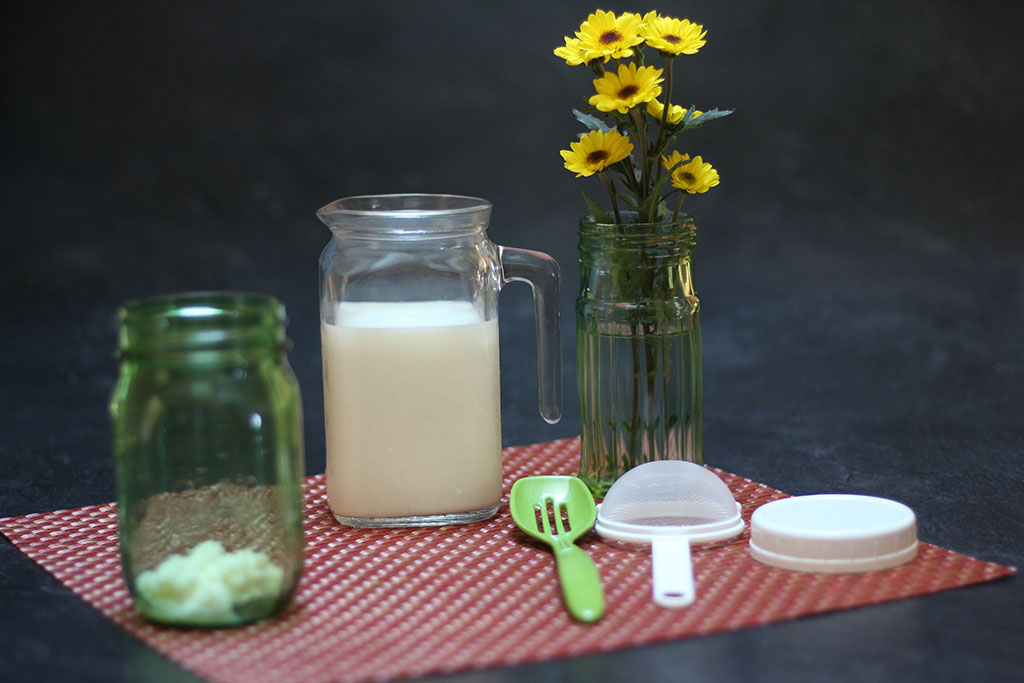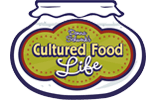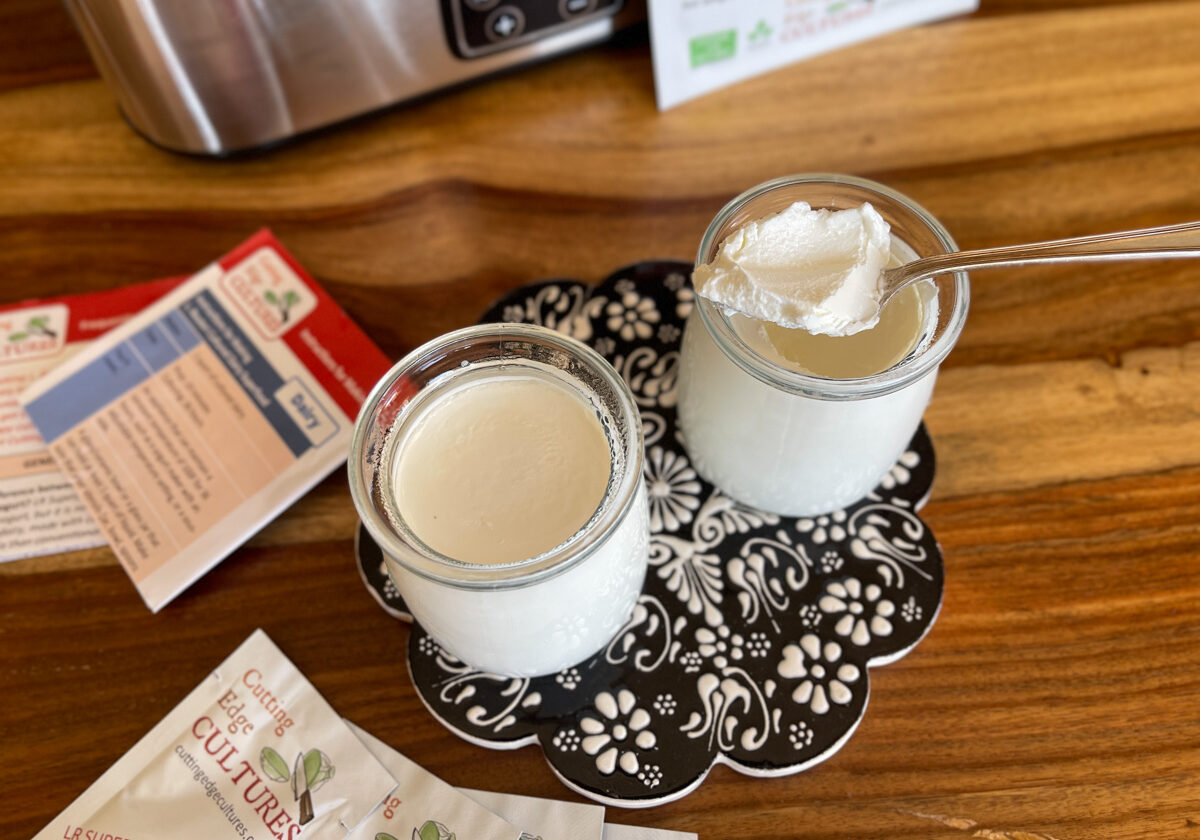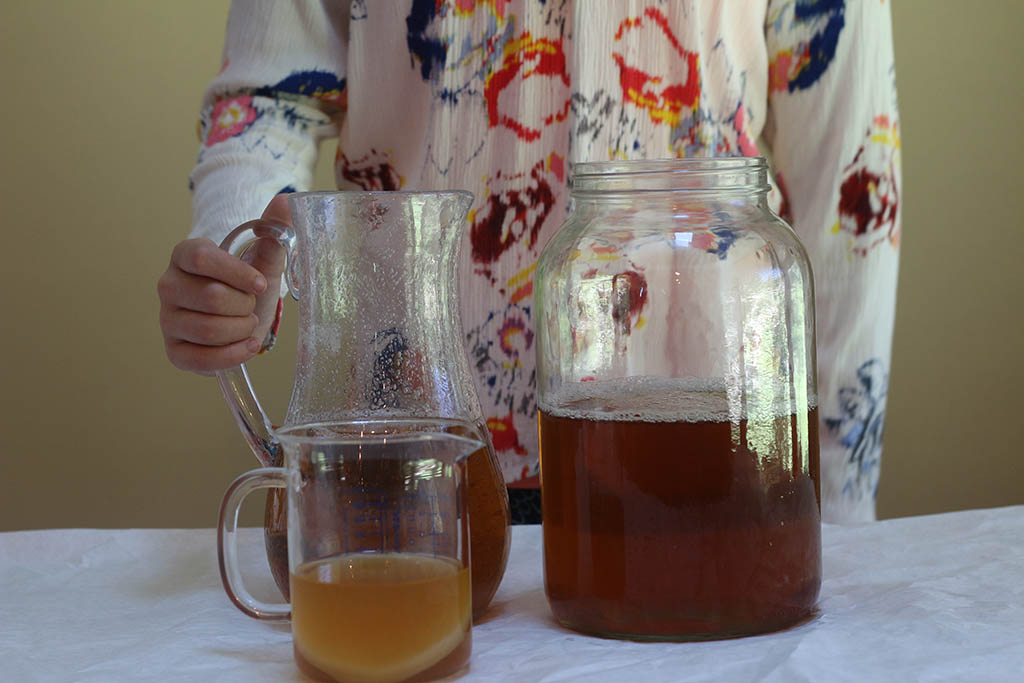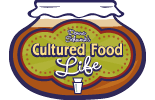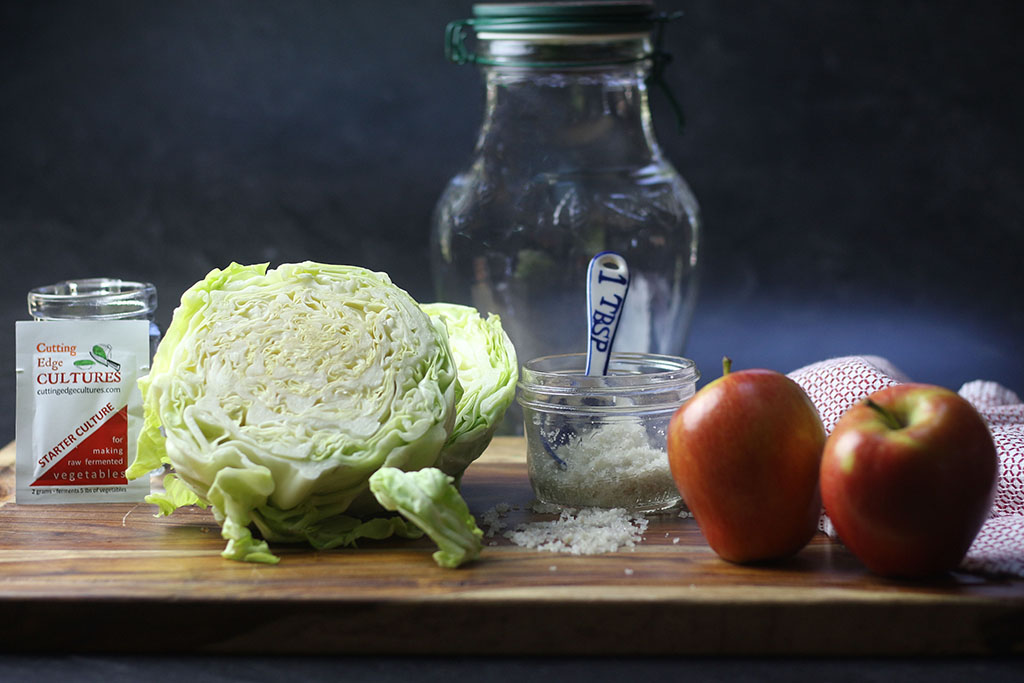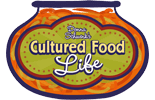
Probiotic Foods and Cancer
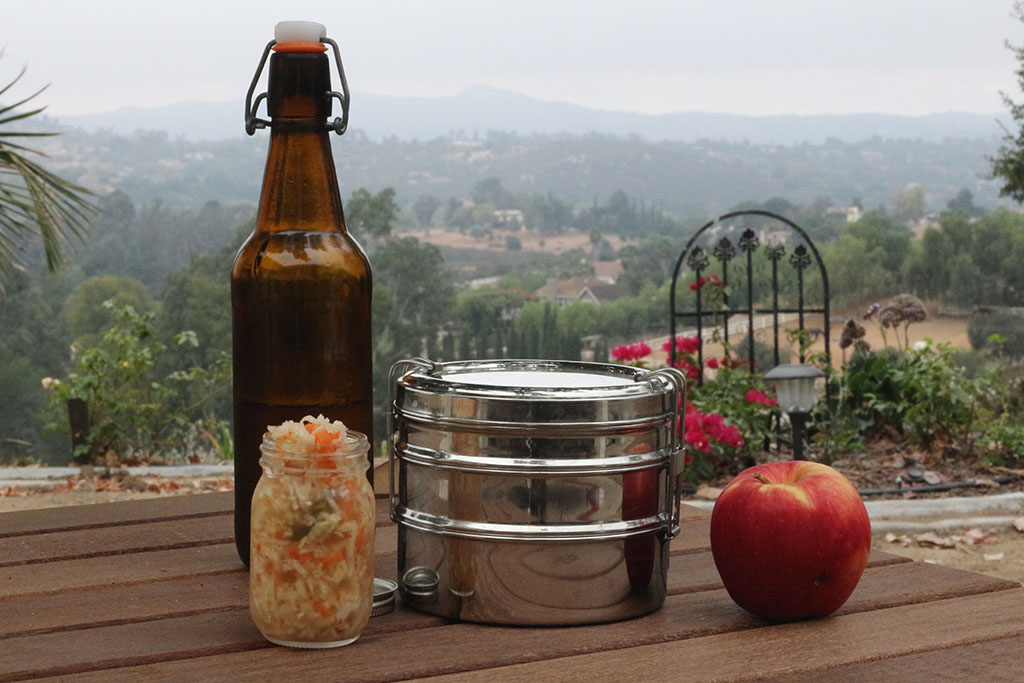
 In 2010, I had just started my blog and Facebook page, and the second person to post on my page was a man named Chris asking me How to Make Kombucha. He was a friend of my older kids and what I didn't know at the time was Chris had just been diagnosed with stage 3 Hodgkin's Lymphoma. He was young and had a new family and needed help.
In 2010, I had just started my blog and Facebook page, and the second person to post on my page was a man named Chris asking me How to Make Kombucha. He was a friend of my older kids and what I didn't know at the time was Chris had just been diagnosed with stage 3 Hodgkin's Lymphoma. He was young and had a new family and needed help.
Fast forward many years later and Chris is now fourteen years cancer-free. He undertook chemotherapy but also added tons of cultured foods to his diet, and now is my web manager and the person most responsible for the way my site looks, runs, and a million other things.
It was many years later that I discovered just how important it was that Chris added cultured probiotic foods to his diet. Your microbiome is crucial in so many ways to keep you healthy and thriving. New studies have found that certain strains of bacteria not only keep cancer at bay but also help you overcome and repair the gut if you need to do treatment.
Cancer And Microbes
Gut Microbes Repair The Gut After Chemo
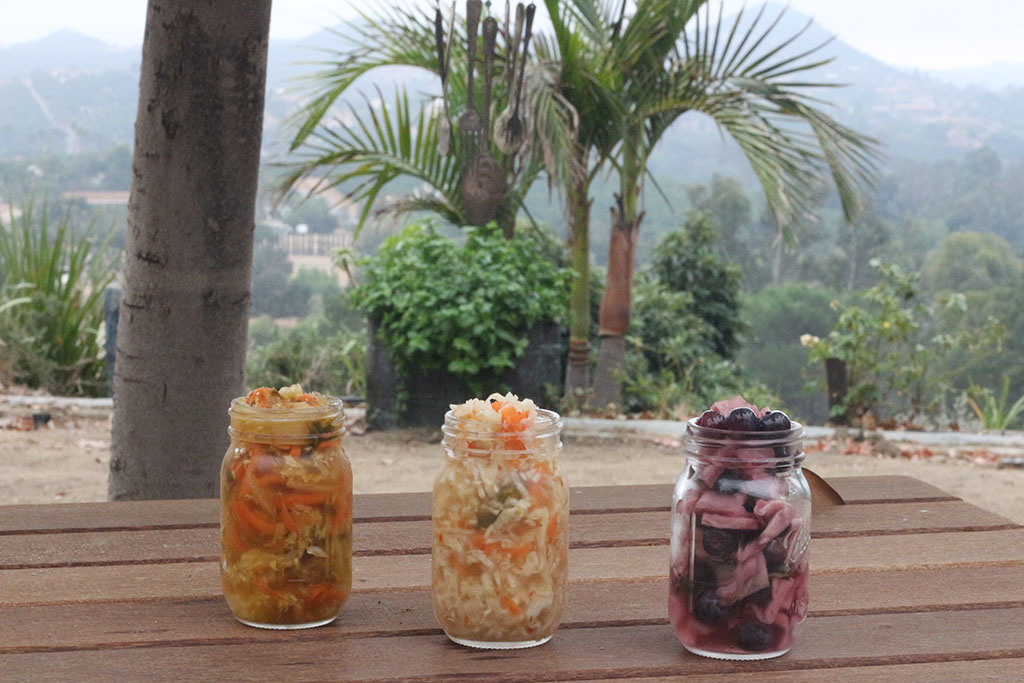
Along with cancer often comes the use of chemotherapy which brings with it a host of other problems. There has been some research done on the connection between the gut and chemo. In one clinical study, researchers gave a group of mice an injection of chemotherapy that would, pound for pound, kill most adult human beings. Why? According to Jian-Guo Geng, associate professor at the University of Michigan School of Dentistry, “All tumors from different tissues and organs can be killed by high doses of chemotherapy and radiation, but the current challenge for treating the later-staged metastasized cancer is that you actually kill the [patient] before you kill the tumor.” So the goal was to test a recently discovered biological mechanism that focuses on preserving the integrity of the gastrointestinal tract—a mechanism that helped mice live through this lethal dose of chemotherapy.
The mice were injected with a substance called Rspo1, or R-spondon1, which activates stem cell production within the gut. These stem cells then rebuild damaged tissue faster than chemo can destroy it. Of the mice that were given R-spondon1, 50 to 75 percent survived the potentially fatal chemotherapy dose. All the mice that did not receive R-spondon1 died.2, 3 Here is the exciting part: your body already has a way to make R-spondon1 on its own. Inside the human gut, a layer of epithelial cells is regenerated every four to five days, as long as you have the right gut flora. If you have healthy gut flora and include a group of healthy strains of bacteria, your body will regenerate itself. If it is not healthy, then it slows or halts the regeneration of your intestinal cells. The probiotics in your gut can determine how, and if, your body survives chemotherapy—making it even more crucial for those with cancer and going through chemo to add probiotics and prebiotics to their diet.
Akkermansia and Your Gut Lining
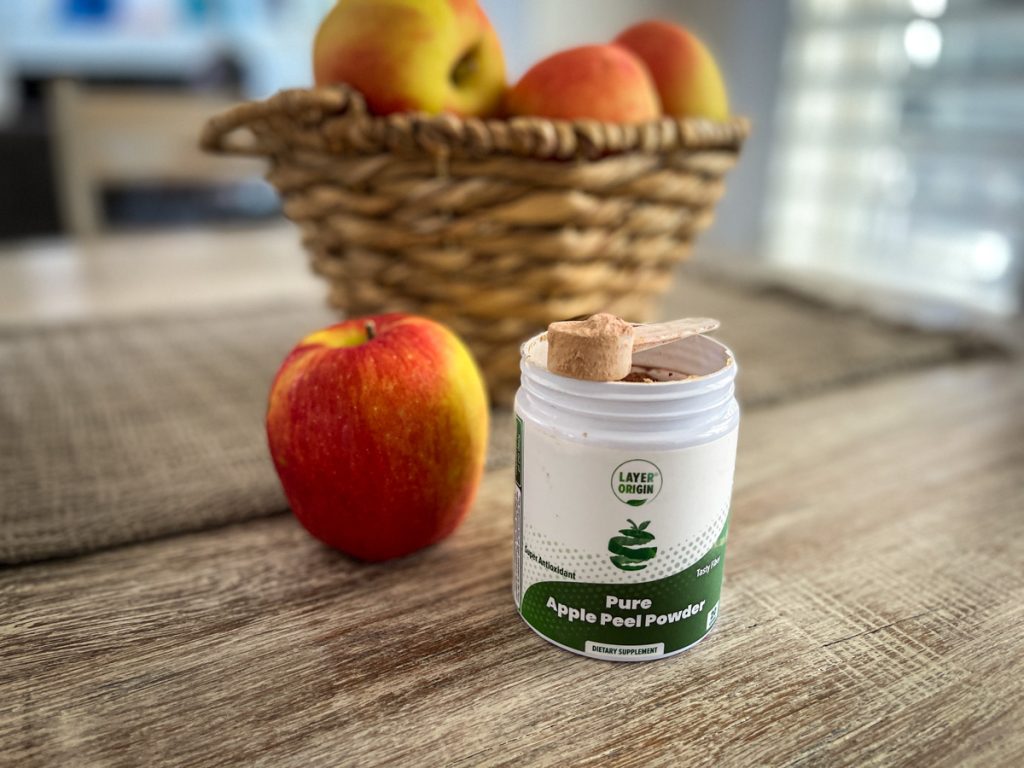
Akkermansia muciniphila is an essential bacteria in your gut. It was discovered in 2004 by microbial ecologist Antoon DL Akkermans and these (friendly) bacteria make up one to four percent of our total gut microbes. [1] Akkermansia helps to maintain our gut lining and has many health benefits. Our gut lining keeps us protected from the outside world. When it's damaged, you can have leaky gut syndrome which is linked to IBS, anxiety, fibromyalgia, and chronic fatigue syndrome. It's important to strengthen your gut lining, especially after chemotherapy. Certain foods can be powerful medicine and can keep your gut and Akkermansia microbes thriving.
One of the foods Akkermansia loves and thrives on the most is apple peels. Apples are loaded with pectin. Apples contain over 50 percent pectin, a potent prebiotic, and Akkermansia grows like crazy when you eat apples - especially the peels.
Other foods that feed Akkermansia:
- Elderberries
- Blueberries
- Jerusalem artichokes
- Asparagus
- Cherries
- Strawberries
- Plums
- Raspberries
- Apple peels
- Apples
- Apple Peel powders
- Rye bread
- FOS fructooligosaccharides— This had good results in feeding and growing Akkermansia in a laboratory. You can find FOS in Prebio Plus.
Akkermansia muciniphila helps to maintain our gut lining and does it so well that it creates short-chain fatty acids, like butyrate, that help to keep insulin resistance in check It can also help reduce blood sugar and blood pressure. Akkermansia also consumes human milk oligosaccharides (HMOs). Infants get this bacteria at birth and when they consume breast milk. Cehck out more about this powerful gut bacteria. Click here
Cultured Kraut And Breast Cancer Prevention
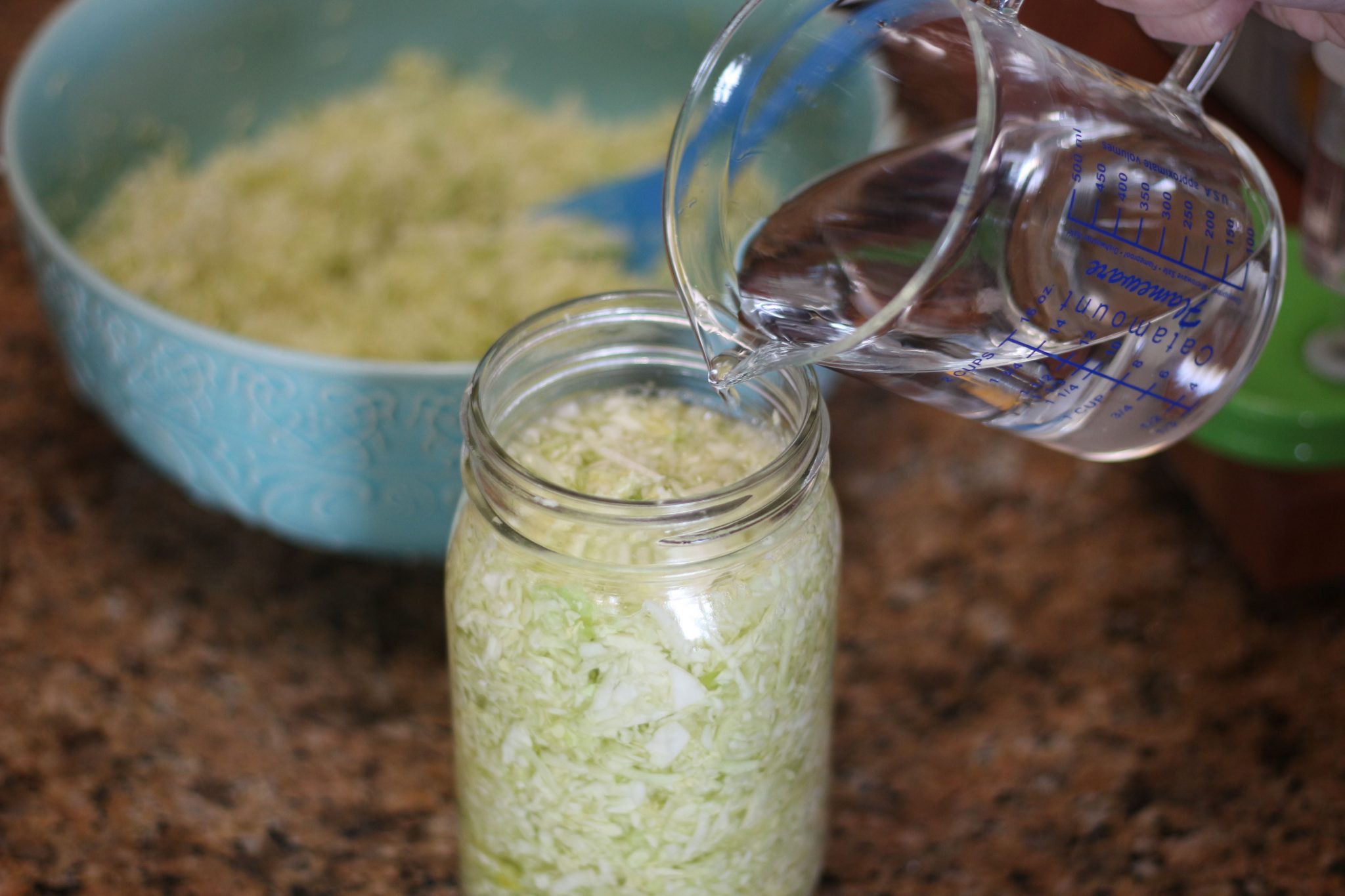
In 2005, a team of researchers in Poland and the United States studied two groups of young Polish women: one that had immigrated to the United States, and one that had not. They found that the rate of breast cancer was three times higher for those in the U.S. than for those still living in Poland. Further studies concluded that the consumption of cultured sauerkraut was a possible factor in the differing rates of cancer. Women in Poland ate an average of 30 pounds of cultured sauerkraut each year, while the women in the U.S. ate less than 10 pounds per year.[4] Why does this matter? Sauerkraut contains high levels of glucosinolates, which have been shown to have anticancer activity in laboratory research.
Other studies have focused on estrogen metabolism and the enzymes in sauerkraut and its juices. A 2012 study conducted by biochemist Hanna Szaefer and her colleagues looked at the ability of the enzymes in cabbage and sauerkraut to change the expression of the P450 enzyme, which metabolizes estrogen but is also carcinogenic. Their research supported the idea that the consumption of sauerkraut was a beneficial food for the prevention of breast cancer in women.[5]
Cultured Kefir And Cancer
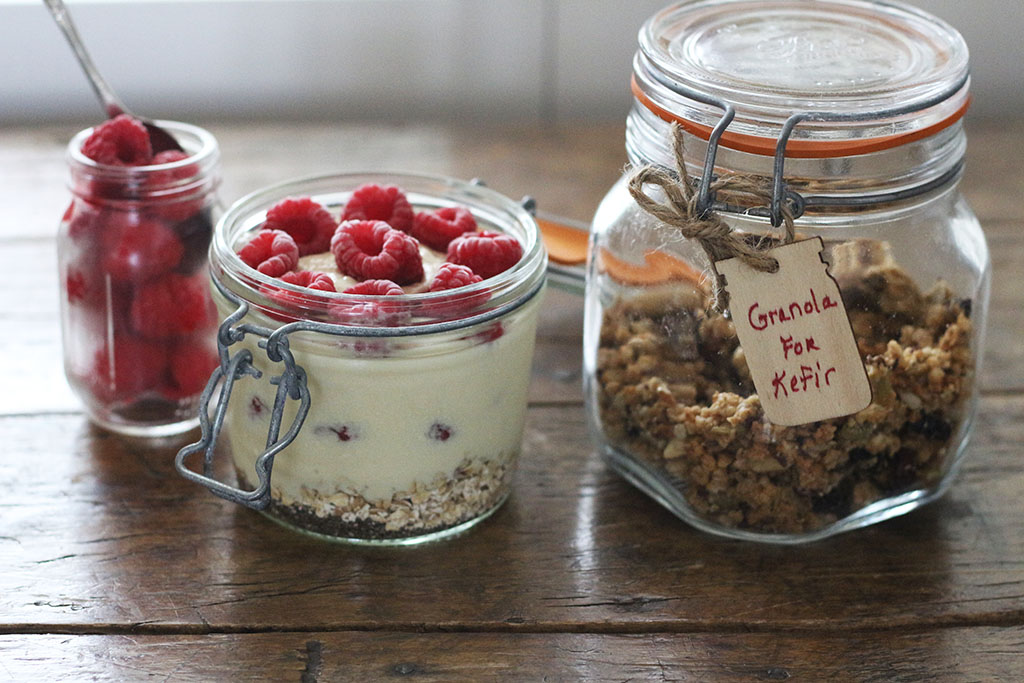
There have been a few studies recently that have directly linked the consumption of kefir to improvement in cancer cases. In 2011, one study showed that kefir reduced the damage to the DNA in colorectal cancers and colon cancer.[6] Another study showed that cancer cells in the stomach started to mutate and self-destruct with the addition of kefir to the diet. [7]And in another, researchers gave kefir to mice daily and found that it was very effective in regulating the immune system and stopping breast cancer growth[8]
L. Reuteri and Colon Cancer
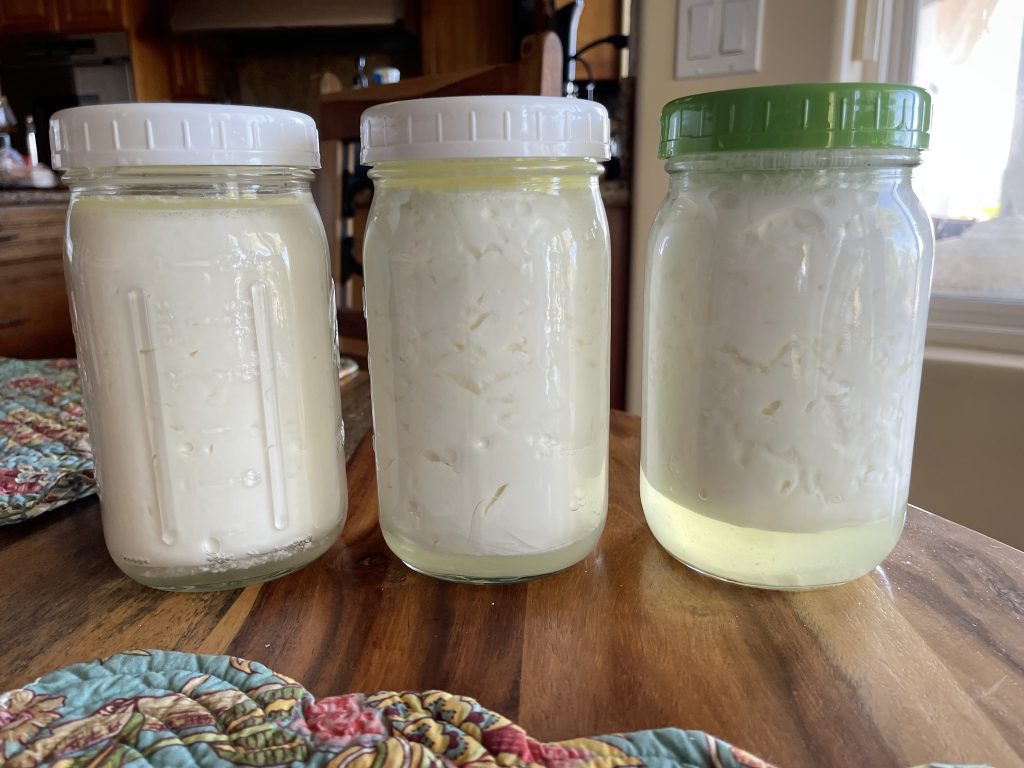
Researchers from the University of Michigan Medical School have found that those with colorectal cancer (CRC) tumors have an altered metabolome present that permits cancer progression. They also found that having a healthy gut microbiome suppresses tumor growth in CRC cells.
Several studies were done on mice and humans using Lactobacillus reuteri (L. Reuteri) which is known to reduce inflammation in the intestine. The teams were interested in testing its effect on colorectal cancer tumors. Having microbial dysbiosis is a sign of colorectal cancer (CRC) and contributes to inflammation and tumor growth.
Gut microbes signal metabolites and they found that certain microbial metabolites from healthy mice or humans are growth-repressive to colon cancer. When a microbiome contains L. reuteri and its metabolite reuterin, it was found that it was downregulating tumor growth in mouse and human CRC. L. reuteri restricts colon tumor growth and increases tumor-reactive oxygen species. Their findings indicate that a healthy microbiome, and specifically L. reuteri, is protective against CRC. More and more studies are finding this to be true as well. [9,10,11]
We have a great way to increase your L. reuteri which is mostly absent from your microbiome if you've had any kind of antibiotic. Check out our L. Reuteri yogurts below.
Listen To My Podcast
Our gut bacteria can not only help us from developing cancers but can also help us repair our guts which is crucial in our survival from chemotherapy. Our microbes are always working to keep us healthy from all manner of diseases but they need our help too. Tune in to learn more.
References:
- https://www.ncbi.nlm.nih.gov/pmc/articles/PMC6064808/
- L.G. van der Flier and H. Clevers, “Stem Cells, Self Renewal, and Differentiation in the Intestinal Epithelium,” Annual Review of Physiology 71, (2009): 241-60 and L. Bailey, “Gut Reaction: Mice Survive Lethal Doses of Chemotherapy,” Michigan News (July 31, 2013).
- https://www.naturalnews.com/041449_chemotherapy_probiotics_antibiotics.html
- D. Patton, “Sauerkraut Consumption May Fight Off Breast Cancer,” NUTRAIngredients (November 4, 2005)
- H. Szaefer et al., “Modulation of CYP1A1, CYP1A2 and CYP1B1 Expression by Cabbage Juices and Indoles in Human Breast Cell Lines,” Nutrition and Cancer 64, no. 6 (August 2012): 879–88
- A. Grishina et al., “Antigenotoxic Effect of Kefir and Ayran Supernatants on Fecal Water-Induced DNA Damage in Human Colon Cells,” Nutrition and Cancer 63, no. 1 (2011): 73–9
- J. Gao et al., “Induction of Apoptosis of Gastric Cancer Cells SGC7901 In Vitro by a Cell-Free Fraction of Tibetan Kefir,” International Dairy Journal 30, no. 1 (May 2013): 14–18
- A. de Moreno de Leblanc et al., “Study of Immune Cells Involved in the Antitumor Effect of Kefir in a Murine Breast Cancer Model,” Journal of Dairy Science 90, no. 4 (April 2007):1920–8
- https://www.cell.com/cancer-cell/pdf/S1535-6108(21)00613-9.pdf
- https://dailynews.ascopubs.org/do/10.1200/ADN.22.200906/full/
- https://www.sciencedirect.com/science/article/abs/pii/S1535610822000162
Are you on the list?
Sign up today and I'll send you my free Getting Started Guide!
Each week I'll send you updates, tips, recipes, and more! You might even be a winner of my weekly giveaway! (starter cultures, memberships, and more!)
Come be a part of my cultured food family!

